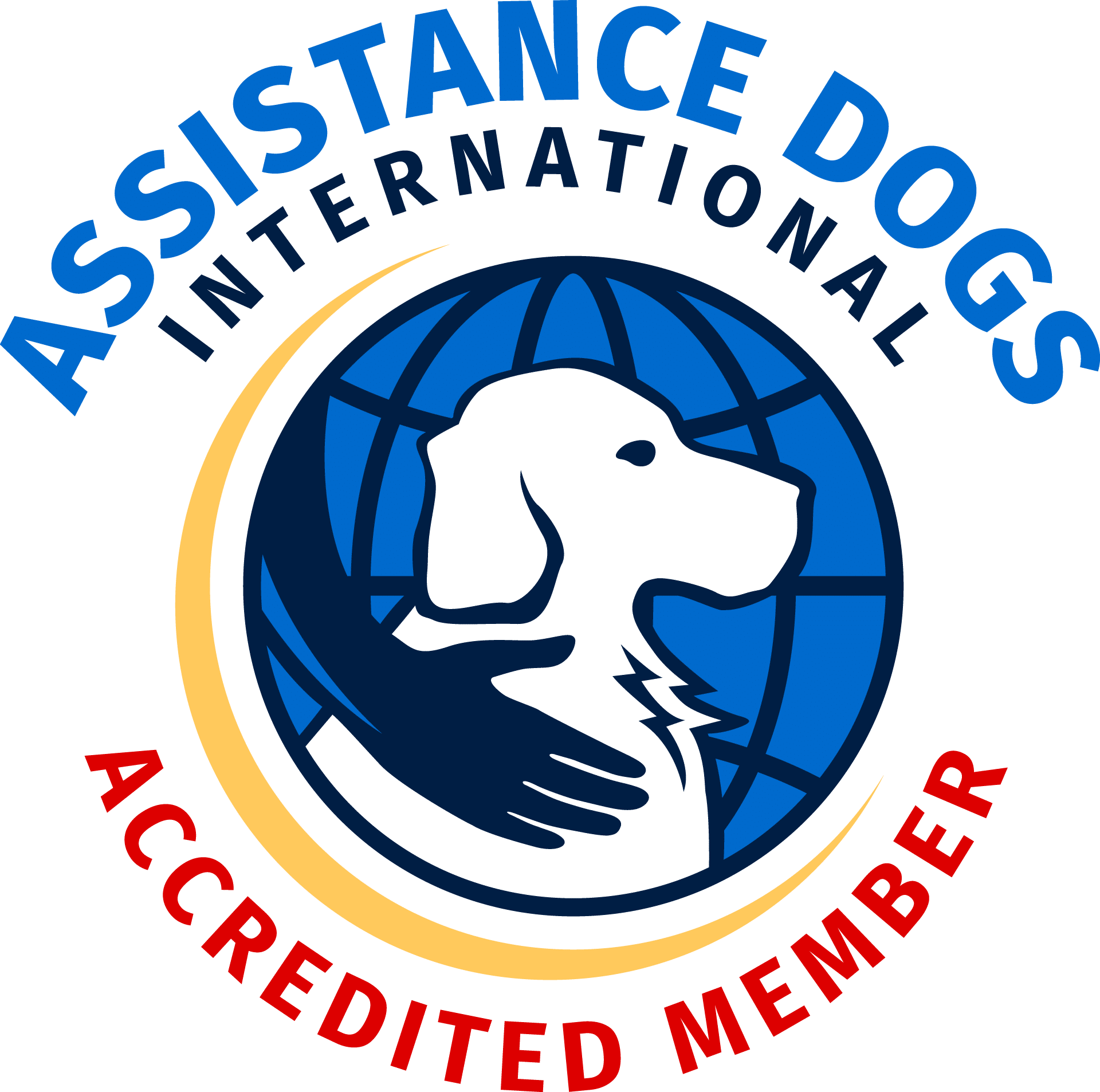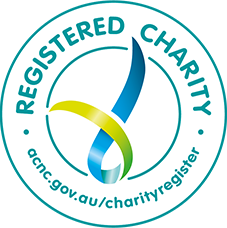
Become a Puppy Educator
Love and guide a super pup in the making at home from when they are about 8 weeks old, until they are they are 12-16 months old. For those magical early puppyhood months, Puppy Educators are the whole world to their fur baby.
The aim is to socialise and educate the puppy in basic skills, everyday life and outdoor experiences, as well as teach good house manners.
Puppy Educator
________________________
At eight weeks of age, our Assistance Dog puppies are placed in the community with volunteer Puppy Educators. These families or individuals ensure that our newbies get the best possible care, in a loving home environment.
These amazing, dedicated volunteers have one thing in common — they truly embrace the opportunity to help change people’s lives forever.
A Puppy Educator is someone who fosters and teaches basic skills to an Assistance Dogs Australia (ADA) puppy in their home. The Puppy Education program usually begins from 8 weeks of age and continues until they are 12-17 months old, and they are ready to move on to Advanced Training at the National Training School in Sydney.
The aim is to socialise and educate the puppy in basic skills, everyday life and outdoor experiences, as well as teaching good house manners. These experiences play a vital role in the future of an Assistance Dog.
What’s required?
This is perfect for you if:
- You want to see what it is like having a puppy for up to 15 months at home with your family, before committing to getting your own dog.
- You have children over 4 yrs old (in school).
- You are retired, work from home, or work shifts which mean that a puppy is not left alone for more than 4 hours a day.
- You want to understand more about dog psychology or puppy training.
- You simply have the time to give and are looking to get some puppy love in your life.
- You would like to give back to the community a great Assistance Dog to be, for a person with physical disabilities, Autism, PTSD or children with learning disabilities.
Become a Puppy Educator
Watch a puppy and her Educator’s journey here:
Don’t take our word for it…
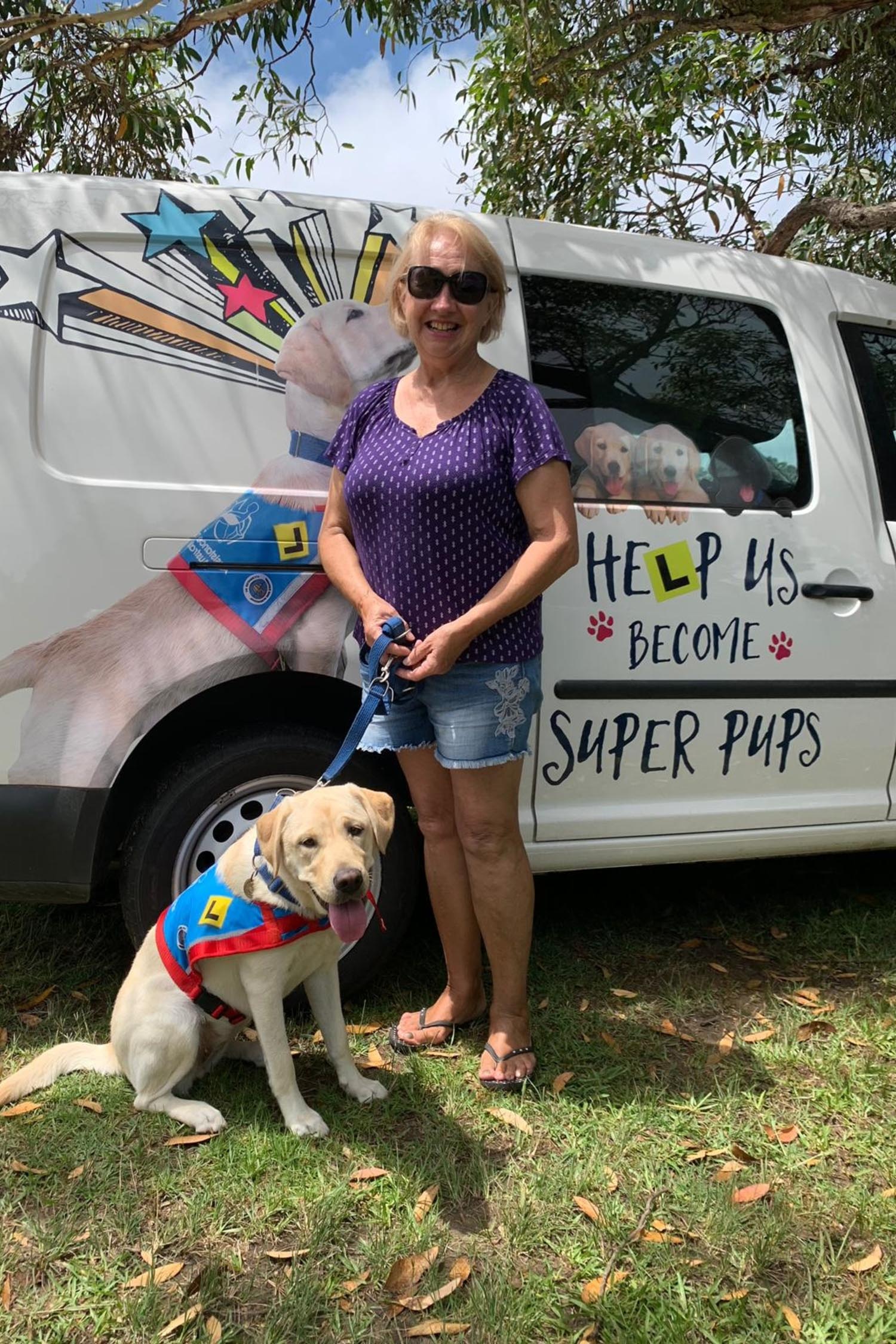
Irene and pup Winnie
“I recently had the privilege of being a puppy educator to a wonderful Assistance Dog puppy called Winnie. I was provided with on-going, expert guidance from lovely Fran at ADA throughout the year, and always felt completely supported in Winnie’s care and training. The result was a joyful and unforgettable 10 months shared with the beautiful Winnie as she grew from a tiny puppy to an awesome adult.”
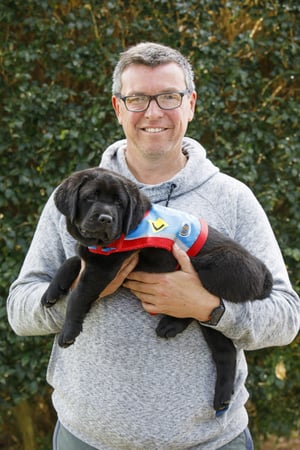
Gary and pup Laser
“It’s great to be a small part of something that will add so much value to someone’s life. I can’t describe how wonderful it is to be a part of ADA and how much support is provided by the whole ADA community.”
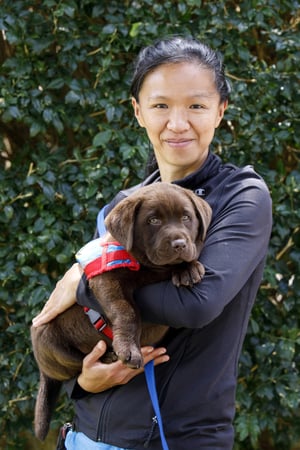
Yinna and pup Mocha
“Puppy Educating is dynamic, challenging and lots of fun. Being out and about with an Assistance Dog in Training is the closest for me to get famous – (actually, it’s the puppy that gets the attention, not me). Helps an introvert like me to boost social confidence. It is such a rewarding journey. Love being a Puppy Educator!”
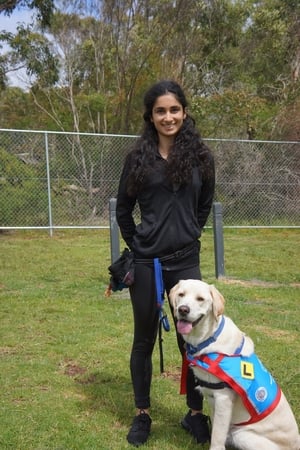
Gabby and pup Senna
“The year we spent with Senna was intense but immensely rewarding.
Being a part of this journey meant that we were able to see him grow and mature from an intelligent and affectionate little puppy who loved to learn into a beautiful and proud boy who was able to accomplish new skills on a daily basis.
Whilst it was an emotional rollercoaster when saying our goodbyes, we were and still are filled with pride for our little learner who will no doubt graduate and make someone’s life better.”
Puppy Educator FAQs
What is a Puppy Educator?
A Puppy Educator is someone who fosters and teaches basic skills to an Assistance Dogs Australia (ADA) puppy in their home. The Puppy Education program usually begins from 8 weeks of age and continues until they are 12-17 months old, and they are ready to move on to Advanced Training at the National Training School in Sydney.
The aim is to socialise and educate the puppy in basic skills, everyday life and outdoor experiences, as well as teaching good house manners. These experiences play a vital role in the future of an Assistance Dog.
How old must I be to be considered as a Puppy Educator?
The applicants should be over 18 years old. Children may be involved in the project, but full responsibility should be with an adult member of the family. Only the adult can be the primary handler of the puppy, and handle the pup while out and about in public.
Can I still be a Puppy Educator if I have young children?
Unfortunately, households with children under five years old are ineligible for puppy volunteering. It’s a recipe for mischief!
Do I need to have a Police Check to be a Puppy Educator?
A Police Check is required to volunteer as a Puppy Educator, the cost of which will be reimbursed to you by Assistance Dogs Australia.
Can I work full time and be a Puppy Educator?
The applicant must have time to devote to educating the puppy. Anyone who works full-time out of the house may wish to consider alternative volunteering options with us. Part-time and casual workers are always considered.
Some employers of part-time or casual workers may allow Puppy Educators to take the puppy to work with them. In this case, all people in the workplace will need to comply with the training guidelines and interaction rules.
Some Assistance Dogs regularly visited office environments with their Puppy Educator. People who work from home are, of course, most welcome!
How much support and training is given?
Your Puppy Educator Supervisor will organise puppy classes in different community locations throughout puppyhood and its adolescence. The more experiences our puppies are exposed to, the better!
Puppy Educators should be available and eager to join in these pre-organised classes. We often work in shopping centres or other public venues and you would be expected to attend these on a regular basis. Our classes are held weekdays during business hours.
Your Puppy Educator Supervisor will visit you at home every 4-6 weeks. This means that you need to be available for about 2 hours every fortnight. In addition, you will need to practice the handling and training you receive from your Puppy Educator Supervisor on a daily basis.
How can I find out if I qualify to become a Puppy Educator?
We have a Self-Screening Quiz for potential Puppy Educators which can be helpful. This can be found at www.assistancedogs.org.au/uncategorized/self-screening-quiz-for-puppyeducator-applicants/
An Information Session is held for applicants who meet the basic criteria required to foster an Assistance Dogs Australia puppy. If you are interested, please complete the online application form and we will be in contact to further discuss Puppy Education.
How often does Assistance Dogs Australia look for new Puppy Educators?
We are always looking for Puppy Educators! If educating a puppy does not suit you now, you may wish to consider it sometime in the future or consider being a Puppy Carer or B&Ber (B&B – Sydney & Brisbane only).
We have puppies available year-round, and we are always looking for new volunteers to join our Puppy Carers (short-term carers) and B&B’ers (weekend carers) community. Please see the Puppy Carer and B&Ber FAQ for further information: https://www.assistancedogs.org.au/support-us/become-a-puppy-educator-and-carer/puppy-carer-faqs/
What if I have other pets in the house?
Families who have other pets are welcome to apply. We try to match your lifestyle and your family pet’s temperament, to best suit the pup’s needs. We need to make sure the welfare of all animals is taken into consideration. To achieve the best outcome for an ADA puppy, there should be no more than 2 other dogs in the home. The dogs should be over 18 months of age.
What if I am going away on vacation or have an emergency?
We organise volunteer Puppy Carers to look after the puppy while you are away. Due to the limited number of volunteer Puppy Carers, we request that you give your Puppy Educator Supervisor a reasonable amount of notice so they can organise care for your puppy. Please note we try and avoid having the puppy spend too much time away from its Puppy Educator’s family environment.
I live in an apartment. Can I still be considered as a Puppy Educator?
Yes, apartment dwellers are considered, but the puppy will need regular exercise, a place to toilet and a safe play area. This may be a strong temporary wire construction or a fenced yard. Alternatively, some access to a safe area for the puppy to exercise is needed.
I don’t drive. Can I still apply?
Daily access to a car is a requirement in case of emergencies (for vet visits). Your pup also needs to become comfortable with car travel and you will need to travel to puppy classes. Puppy Carers and B&Ber’s need to be able to pick up/drop off puppies they are caring for.
Can the puppy go everywhere with me?
We encourage Puppy Educators to take the puppy on as many outings as possible. These range from normal shopping excursions to school visits, banks, libraries and on public transport. Of course, regular walking is necessary, and we observe the length of outings, depending on the pup’s age and development.
The Right of Access is different in each State/Territory in Australia. In most States, full public access is only awarded to an accredited Assistance Dog Team. While the puppy is still with the Puppy Educator, it has no legal right of entry (QLD being the only exception). The good news is that the majority of establishments welcome Assistance Dog Australia pups into their space. With very little persuasion and education from the Puppy Educator/Carer, the puppy is usually allowed access to most places. We do provide you and the pup with sufficient ID to support your request of entry.
What type of person makes a good Puppy Educator?
The Puppy Education program is open to families, singles and retired people who fit all the other criteria. There is no blueprint for a Puppy Educator and each case is considered individually. Of course, you must love dogs, be open and willing to learn how to support them in their learning journey, and dedicate time and energy to nurturing the super pup.
I’ve never owned a dog before. Can I still apply?
Experience is not required, as we will teach you how to care for the puppy. A sensible love of dogs is required. The puppy must be taught and encouraged to be responsive to its handler if they are to succeed in their future role as an Assistance Dog. Having a puppy around the house is like having an extra child!
Where will the puppy sleep?
To keep the puppy safe and help with toilet training, we provide you with a crate. We’d like the puppy to spend as much time out of the crate as possible during the day and evening and they will sleep in the crate at night. However, at busy periods of your day, it is wise to have the puppy spend time relaxing in the crate rather than being unsupervised. If you provide suitable bedding, they will treat the crate as their safe place and use it for rest and play. The crate should be positioned in a living room or kitchen area, where they will become accustomed to the noise and atmosphere of family life. Your Puppy Educator Supervisor will be able to advise you on the best location for the crate in your home.
How much will puppy educating cost me?
Assistance Dogs Australia pays for all food, worming/flea & tick preventatives, veterinary treatments. We also provide you with the necessary equipment, such leashes and collars, ID tags, jacket and a crate to help toilet train a puppy. You will need provide toys and bedding, plus health care and grooming items from a list that we will supply you with upon placement of a puppy with your family.
How long will the puppy live with me?
Ideally, a puppy would stay with you for approximately 12-17 months. Occasionally there might be movement or swapping of puppies within our Puppy Education community and Pups in Prison Program (PIP). This is always done with the best interest for our trainee puppies in mind and your Puppy Educator Supervisor will advise you if the puppy needs to be relocated. Please note that Assistance Dogs Australia can ask for the puppy to be returned at any time during the Puppy Education process.
About us | Support us | Services | Terms & Conditions | Contact us
Copyright © 2023 Assistance Dogs Australia ABN: 90 074 746 160. Privacy Policy.
